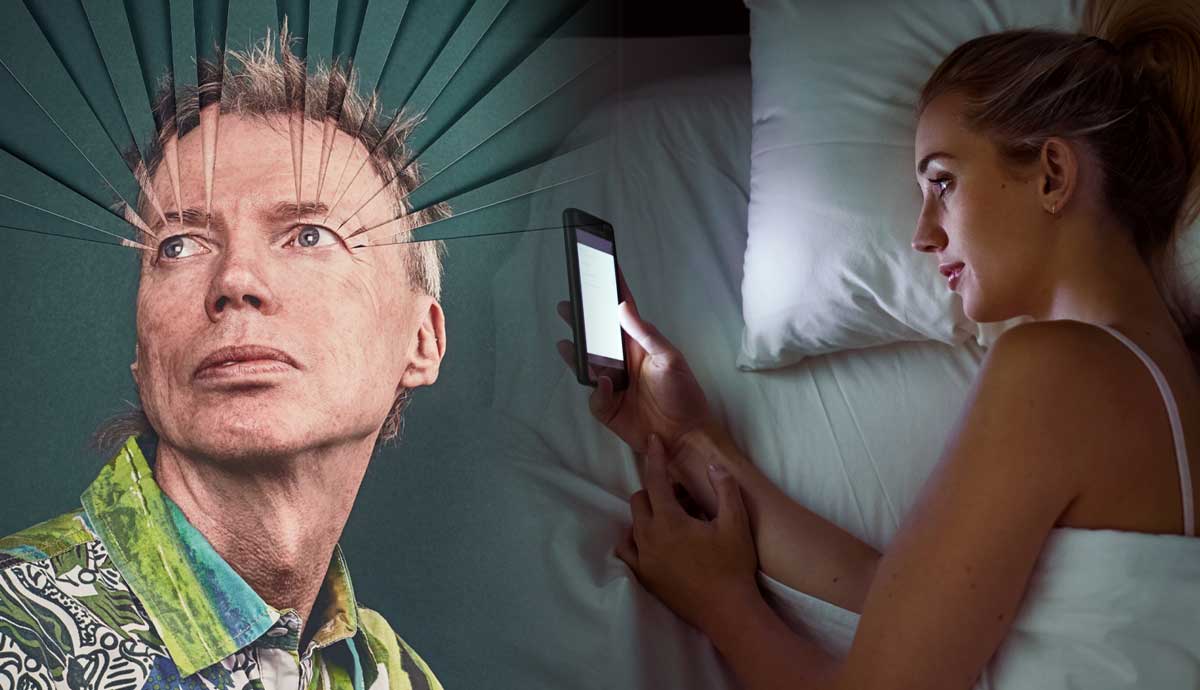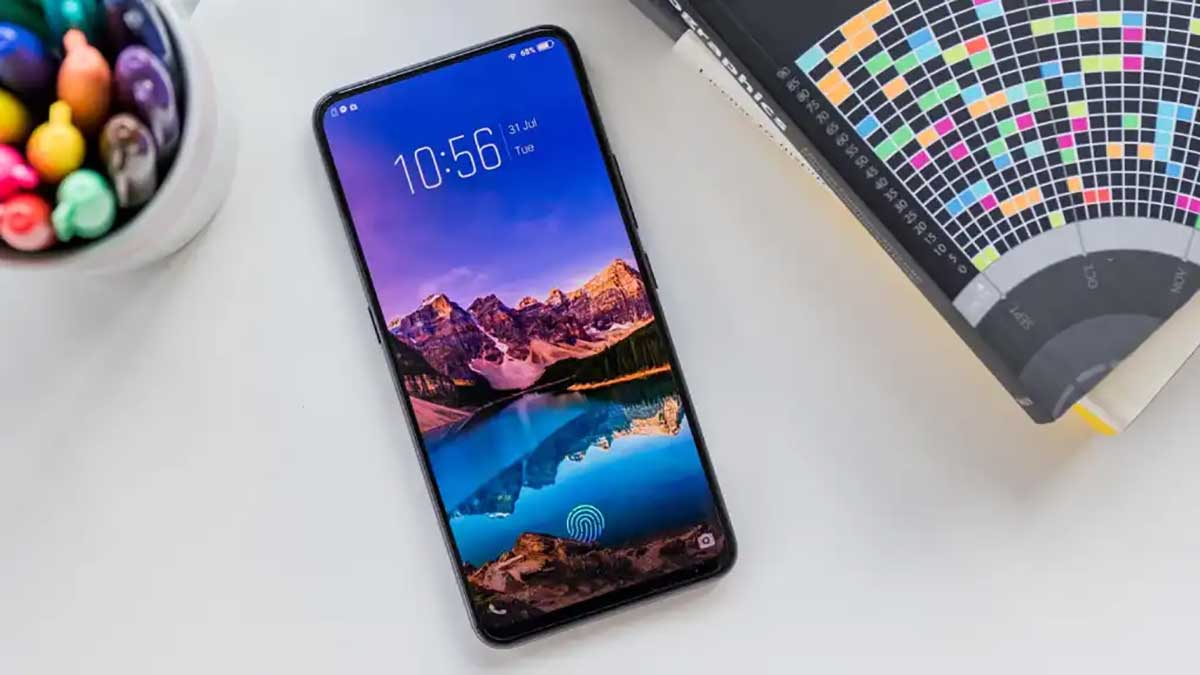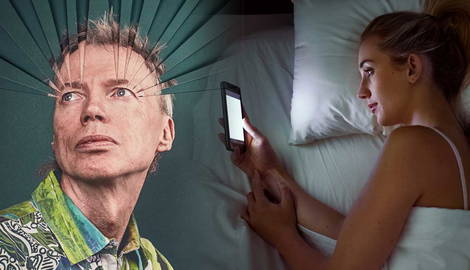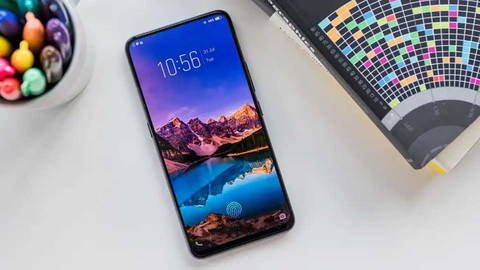
Andy Clark, David Chalmers, and the Pixies all share something in common. They are all concerned with answering the question ’Where is my mind?’ The difference is that, whereas the Pixies were being metaphorical, Clark and Chalmers are being completely serious. They want literally to know where our mind is. Some philosophers theorize that the mind can extend beyond our brains, and even more radically, beyond our bodies.
What Is the Extended Mind?

In their groundbreaking essay ‘The Extended Mind’, Clark and Chalmers raise the question: is our mind all in our heads? Is our mind, and all the thoughts and beliefs that make it up inside our skulls? It certainly feels that way phenomenologically, i.e., when experienced from ‘the inside’. When I close my eyes and try to focus on where I feel I am, I personally feel my sense of self is located just behind the eyes. Sure, my feet are part of me, and when I meditate, I am able to focus on them, but they somehow feel less centrally me.
Clark and Chalmers set out to challenge the seemingly obvious idea that our mind is in our head. Instead, they argue, our thought processes (and hence our mind) extend beyond the boundaries of our bodies and into the environment. On their view, a notebook and pen, a computer, a mobile phone can all, very literally, be part of our minds.
Otto’s Notebook

To argue for their radical conclusion, they deploy two ingenious thought experiments involving art-loving New Yorkers. The first case centers on a woman called Inga, and the second centers on a man called Otto. Let us meet Inga first.
Inga hears from a friend that there is an art exhibition at the Museum of Modern Art in New York. Inga likes the idea of going, so she thinks about where the museum is, remembers it is on 53rd Street, and sets off towards the museum. Clark and Chalmers argue that, in this normal case of remembering, we want to say that Inga believes the museum is on 53rd street because the belief was in her memory and could be retrieved at will.

Now, let’s meet Otto. Unlike Inga, Otto has Alzheimer’s. Since being diagnosed, Otto has developed an ingenious system to help him remember important things, structure his life, and navigate the world. Otto simply writes down what he needs to remember in a notebook which he carries around with him everywhere he goes. When he learns something he thinks will be important, he writes it in the notebook. When he needs to remember things, he searches his notebook for the information. Like Inga, Otto also hears about the exhibition at the museum. Having decided he’d like to go, Otto opens his notebook, finds the address for the museum, and heads off towards 53rd street.
Clark and Chalmers argue that these two cases are identical in all relevant respects. Otto’s notebook plays the exact same role for him that Inga’s biological memory does for her. Given that the cases are functionally the same, Clark and Chalmers argue we should say that Otto’s notebook is part of his memory. Given that our memory is part of our mind, Otto’s mind is extended beyond his body and out into the world.
Otto’s Smartphone

Since Clark and Chalmers wrote their 1998 article, computing technology has changed significantly. In 2022, using a notebook to remember information seems rather anachronistic and quaint. I, for one, store most of the information I need to recall (like telephone numbers, addresses, and documents) on my phone or laptop. Like Otto, however, I often find myself in a position where I can’t remember information without consulting an external object. Ask me what I’m planning to do next Tuesday, and I won’t be able to give a confident answer until I’ve checked my calendar. Ask me what year Clark and Chalmers’ paper was published, or the journal that published it, and I will also need to look it up.
In this case, do my phone and laptop count as part of my mind? Clark and Chalmers would argue they do. Like Otto, I rely on my phone and laptop to remember things. Also, like Otto, I rarely go anywhere without either my phone or laptop, or both. They are constantly available to me and integrated into my thought processes.
The Difference Between Otto and Inga

One way to resist this conclusion is to deny that the cases of Otto and Inga are the same in all relevant respects. This could be done, for example, by arguing that Inga’s biological memory gives her much more reliable access to the information it contains. Unlike a notebook, you can’t leave your biological brain at home, and no one can take it off you. Inga’s memories go everywhere Inga’s body goes. Her memories are safer in this respect.
This, however, is too quick. Sure, Otto could lose his notebook, but Inga could be hit on the head (or have too many drinks in the pub) and suffer temporary or permanent memory loss. Inga’s access to her memories, like Otto’s, can be interrupted, suggesting that maybe the two cases aren’t so different after all.
Natural-Born Cyborgs

The idea of the extended mind raises interesting philosophical questions about personal identity. If we regularly include external objects into our minds, what sort of being are we? Extending our minds into the world makes us cyborgs, that is, beings which are both biological and technological. The extended mind, thus, allows us to transcend our humanity. Contrary to what some transhumanist and post-humanist philosophers argue, however, this isn’t a recent development. In his 2004 book Natural-Born Cyborgs, Andy Clark argues that, as humans, we have always sought to use technology to extend our minds into the world.
For Andy Clark, the process of becoming cyborgs starts not with the insertion of microchips into our bodies, but with the invention of writing and counting using numerals. It is this incorporation of the world into our minds that has enabled us as humans to go far beyond what other animals can achieve, despite the fact that our bodies and minds are not so dissimilar from those of other primates. The reason we have succeeded is that we humans have been much more adept at modifying the external world to help us achieve our goals. What makes us who we are, as humans, is that we are animals with minds that are tailor-made to merge with our environments.
Where Am I?

Another interesting implication of accepting the extended mind thesis is that it opens the possibility that our selves can be distributed across space. It is natural to think of ourselves as being unified in space. If someone were to ask me where I am, I would reply with one single location. If asked now, I would respond ‘in my office, writing at my desk by the window’.
However, if external objects such as smartphones, notebooks, and computers can form part of our minds, this opens up the possibility that different parts of us are in different places. Whereas the majority of me might be in my office, my phone might still be on the bedside table. If the extended mind thesis is true, this would mean that when asked ‘Where are you?’ I’d have to respond that I am currently spread out over two rooms.
The Ethics of Extended Minds

The extended mind thesis also raises interesting ethical questions, forcing us to re-evaluate the morality of actions which might otherwise be considered innocuous. To illustrate, it will be helpful to consider a hypothetical case.
Imagine a mathematician called Martha working on a math problem in a library. Martha’s preferred tools are a pencil and paper. Martha is a messy worker and when she is thinking she spreads out her crumpled and coffee-stained papers covered in notes all over the library table. Martha is also an inconsiderate library user. Having hit a wall in her work, Martha decides to go out for some fresh air to clear her mind, leaving her papers scrunched up in a loose pile. After Martha has left, a cleaner walks past. Seeing the pile of papers, he assumes that another student has failed to tidy up after themselves, leaving rubbish behind. So, given he is tasked with keeping the building clean and tidy, he clears it up, muttering with annoyance under his breath.
If these papers are, literally, considered part of Martha’s mind, the cleaner could be seen to have damaged Martha’s mind, thereby harming her. Given that damaging people’s ability to think would be a serious moral wrong in other cases (e.g., if I caused someone to forget something by hitting them in the head), it could be argued that the cleaner did something seriously wrong to Martha.
This, however, seems implausible. Throwing away someone’s papers left in the library doesn’t intuitively seem to be a serious moral wrong. Accepting the extended mind thesis, therefore, might force us to reconsider some of our settled moral beliefs.
Could We Share an Extended Mind?

The idea of the extended mind opens up other intriguing possibilities too. If our mind can incorporate external objects, can other people be part of our minds? Clark and Chalmers believe they can. To see how, let us imagine a couple, Bert and Susan, who have lived together for many years. Each of them tends to remember different things. Bert is no good with names, and Susan is awful at dates. When on their own, they often have trouble recalling a full anecdote. When they are together, though, it becomes a lot easier. Susan’s recollection of names helps prompt Bert’s memory of the date on which the events described happened. Together, they can recall events better than they can on their own.
In cases like these, Clark and Chalmers suggest that Bert and Susan’s minds extend into each other. Their minds are not two independent things, instead they have a shared component, with each acting as the repository for the other’s beliefs.
Clark and Chalmers argue that the extended mind thesis is the best explanation of the cognitive role that objects play in our lives. Objects such as notebooks, phones, and computers aren’t just tools that help us to think, they are literally part of our minds. Accepting this idea, however, has radical implications for understanding who we are. If Clark and Chalmers are correct, our self isn’t a neatly packaged, unified thing limited by the boundaries of our bodies.












